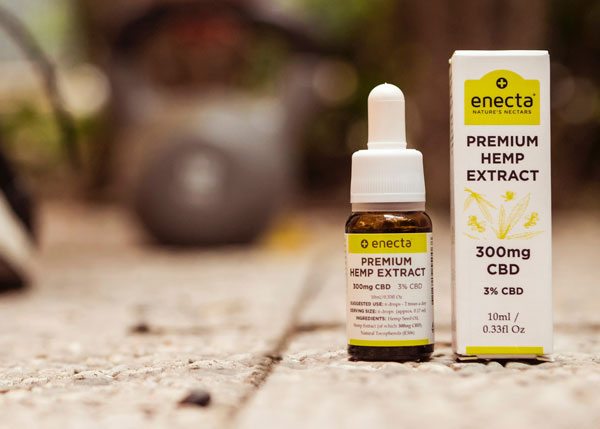By: Tami Wahl, Policy Advisor in Washington, D.C.
The 2018 U.S. Farm Bill was momentous and launched a new domestic hemp production industry designed to invigorate the farming community. Just as the celebratory parade was about to start, the U.S. Food and Drug Administration (FDA) took a position, namely prohibiting hemp-derived cannabidiol (CBD) as in ingredient in food and ingestible products, which arguably, compromises the success of the launch by restricting full access to mature end markets. The FDA’s position has created great market uncertainties, and now, a year+ later the U.S. hemp industry is still being stifled by the same federal agency.
Enter
HR5587– a bi-partisan bill that was introduced this past January to calm the market chaos and provide certainty to all stakeholders.
By way of background, the hemp plant has many uses such as fiber, textile, food and extraction of select cannabinoids. One of the primary cannabinoids currently in demand by consumers is CBD. However, as stated above, domestic hemp producers have restricted access to the food and dietary supplement industries as end markets because
FDA has taken the internal position that CBD is an illegal ingredient based on the drug exclusion rule. The drug exclusion rule prohibits any substance to be used as an ingredient in foods or dietary supplements that has been approved as a new drug or has been subject to a publicized Investigational New Drug clinical investigation, unless the substance was marketed as a food or dietary supplement
before the FDA approved it as a new drug or began the clinical investigation. The FDA contends that CBD was first publicized in the clinical investigation for Epidiolex®, and therefore, all CBD is precluded from entering the market in any other ingestible product. That said, there is pushback from within the natural products industry that hemp-derived CBD is not the same ‘article’ as is used in Epidiolex
®.
Putting that analysis aside, the FDA continues to assert that more research is needed on the hemp-derived CBD as an ingredient. However, the catch-22 of FDA’s reliance on the drug exclusionary rule is that it has also given the FDA a pass on assessing the safety of hemp-derived CBD as an ingredient because the ingredient is considered ‘illegal.’
As an added frustration, as CBD-based products continue to enter the marketplace the FDA has essentially stood down on enforcing the broader provisions in the Food, Drug, and Cosmetic Act (FDCA) that are directly tied to product safety, such as good manufacturing practices (cGMPs), facility registration requirements, and adverse event reporting. The FDA has issued a minimal number of warning letters to companies for making inappropriate health claims, yet enforcement of cGMPs is the key to ensure product label accuracy. It is important to consider that mislabeled products are the most often cited safety concern on CBD-based products, more so than the safety of the CBD ingredient itself.
Meanwhile, hemp producers are entering another grow cycle and are in
need of end markets for their crops. Consumer demand for safe, high-quality CBD-based products continues to grow. Yet the FDA’s circular position remains intact. HR5587 resolves these pressure points by providing an exception to the drug exclusionary rule for hemp-derived CBD, thereby resolving the logjam without impeding the FDA from enacting further regulatory guardrails on CBD, if the FDA feels so inclined.
Two final moving pieces of relevance. Several states have enacted programs and policies to allow hemp-derived CBD-based products within their respective intrastate markets. These measures are a means to support hemp producers and ensure CBD-based products on the shelf are being regulated. The long-term challenge with this model is the inevitable patchwork of state-specific regulations that will certainly be challenging for a brand to develop a national reach.
The most recent compounding factor is COVID-19 and the upending of the global economy. While the nascent domestic hemp program can absolutely play a key role in the U.S. economic recovery post-COVID-19, the FDA doesn’t appear to have the
immediate bandwidth to further engage on CBD-related matters. COVID-19 has highlighted the importance of
domestic production and manufacture, and the invaluable role of small businesses to the overall health of the economy. The hemp industry checks all three boxes. Time will tell if Congress will act to support the hemp industry and fully open the relationship between the hemp producers and the food and dietary supplement industries.
The FDA’s position on the hemp-derived CBD ingredient has created market challenges for a broad swath of stakeholders beyond the hemp producers, to include manufacturers, brands, investors, consumers, regulators, U.S. Patent and Trademark Office, U.S. Small Business Administration (SBA), and other federal agencies. HR5587 merely places hemp-derived CBD on a level playing field as with any other food or dietary supplement ingredient. A company must then navigate the remaining provisions within the FDCA before entering commerce. The matter is not complex; however, the situation has become quite the quagmire and to what end?
If not HR5587, or some iteration of it, there is another approach to resolve this tango: FDA could simply withdraw their position.

